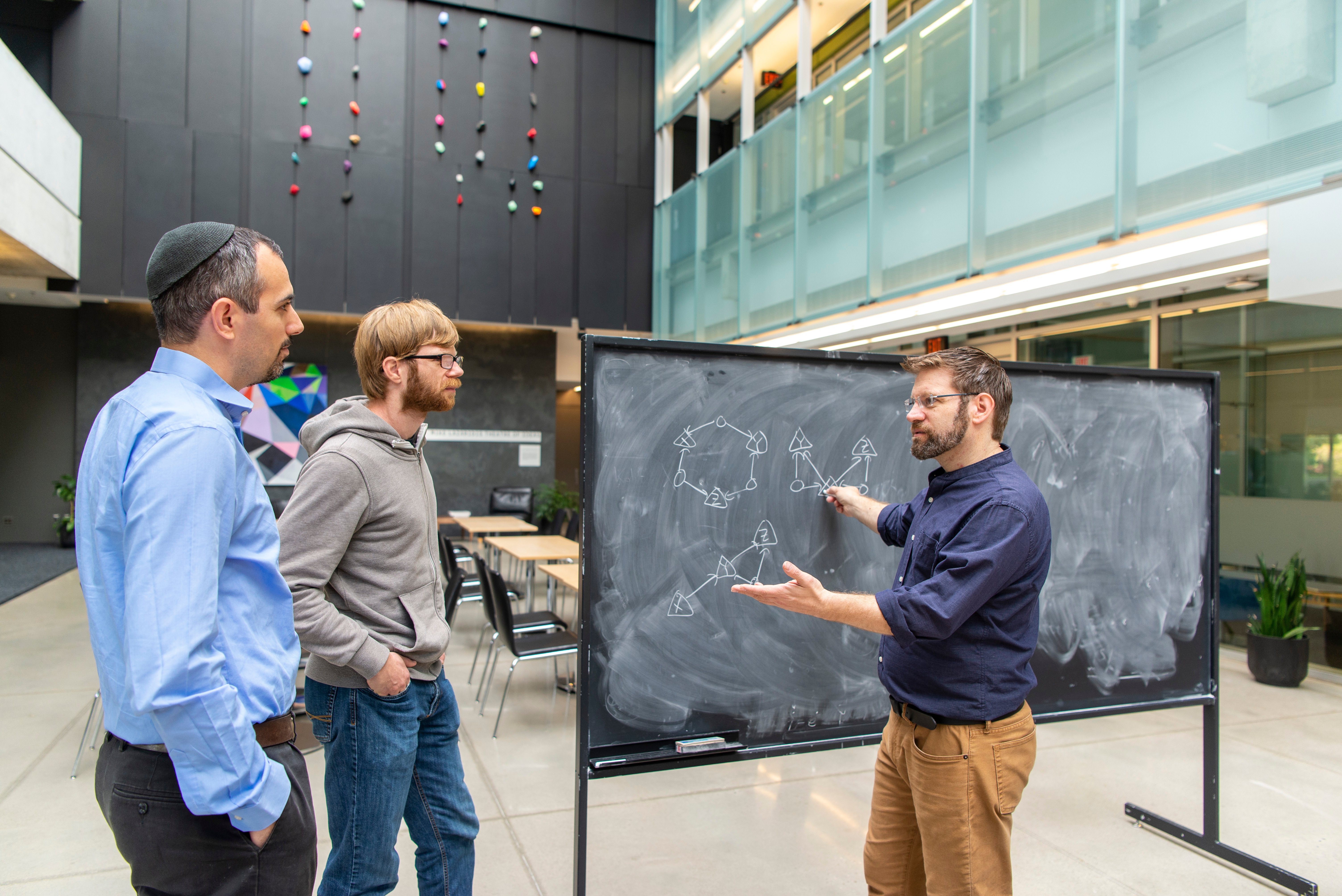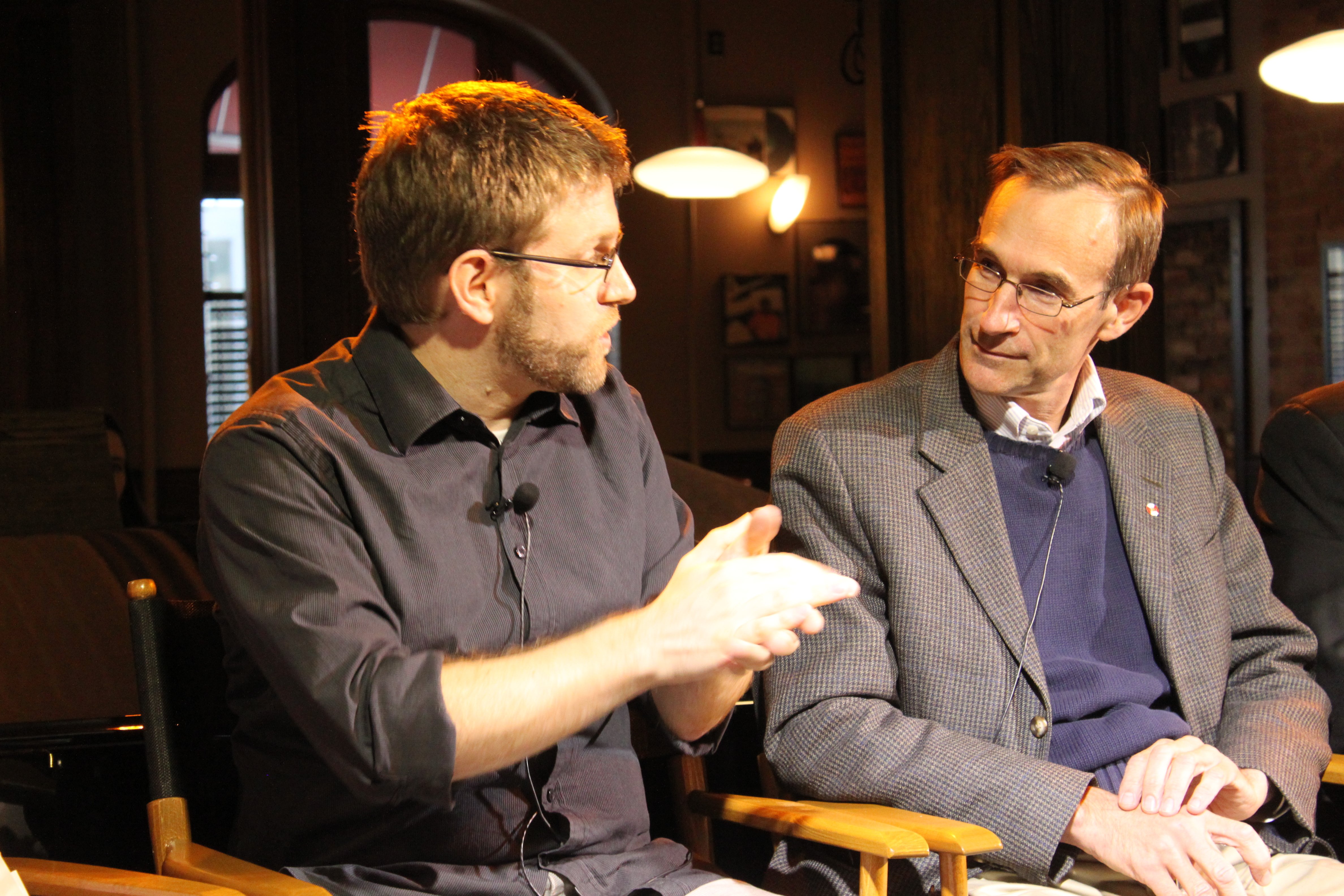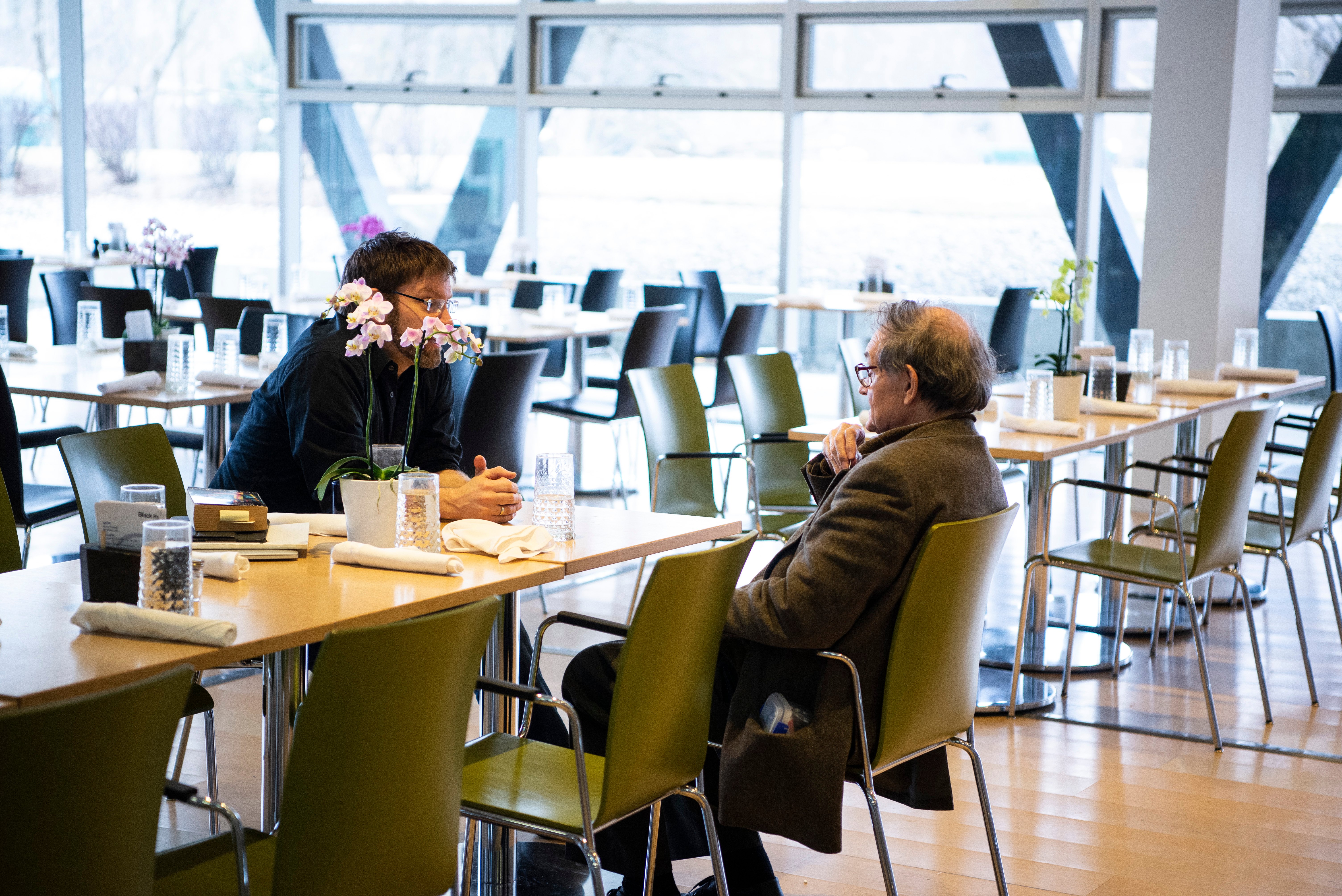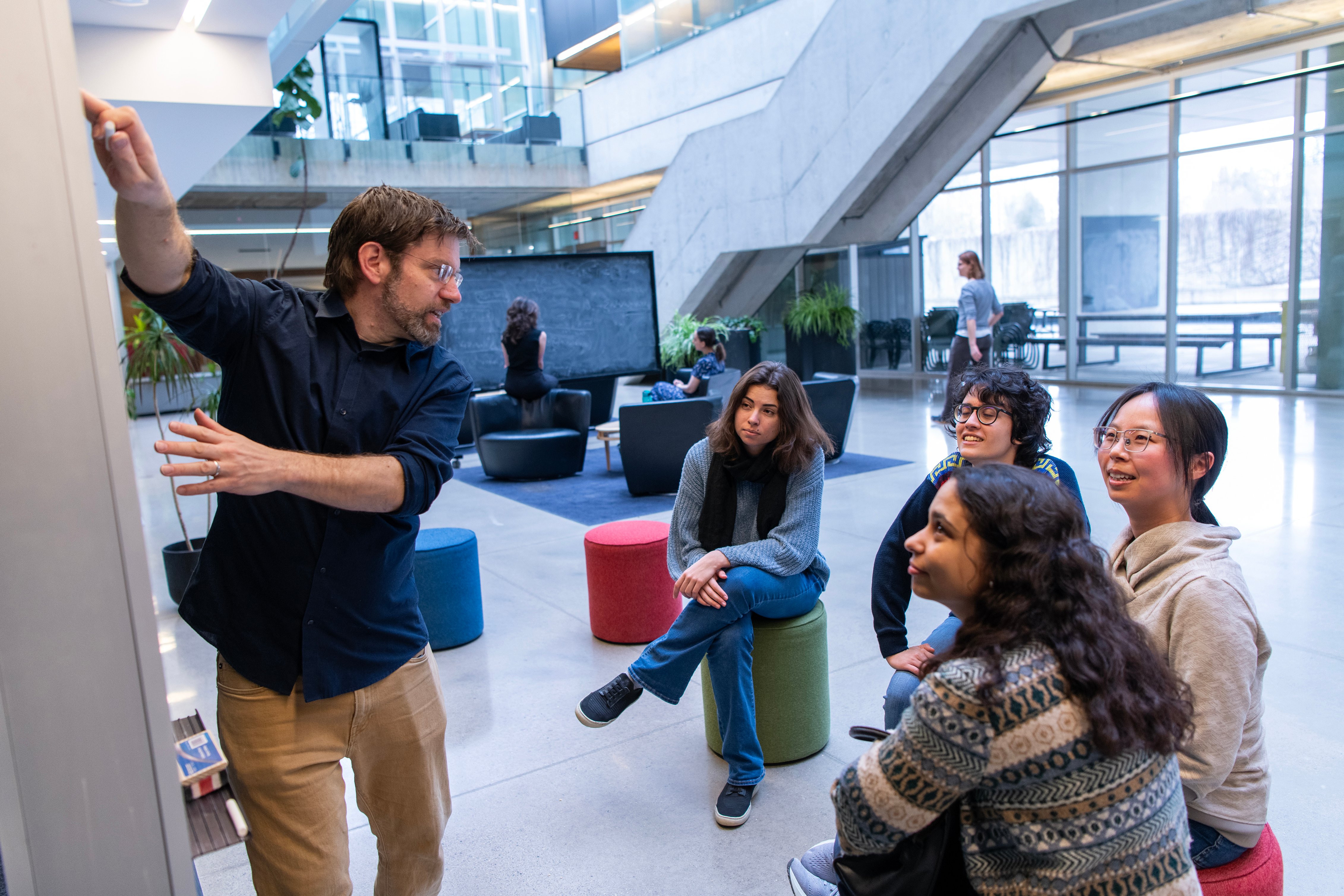The following is the commencement speech that was delivered to the graduating class of the PSI Master’s program in June 2022. The reflections contained within may be of value to anyone interested in pursuing a career in theoretical physics, so we present it here in full and unedited.
Congratulations on your amazing achievement! Every year, it is a privilege to be able to work with the PSI students and learn from you. The energy and enthusiasm you bring to this place are a critical part of the success of Perimeter Institute. So, on behalf of all the researchers, I want to say: Thank you
I’d like to talk a bit about what is distinctive about Perimeter. There are a lot of things that come to mind: the architecture of the building, the bistro, the free coffee. And, of course, there are the people: the admin staff who do such a tremendous job supporting us, the academic staff who have guided you through your PSI journey, and the researchers whose ideas give this institute its distinctive texture. The people are what make Perimeter such a great place to work.
But the thing that always stands out for me when I think about what is unique and distinctive about Perimeter is something you might not expect: the vision statement. If you go to the Perimeter website and have a look at the vision statement, you'll discover that we are here to make breakthroughs. As researchers at Perimeter Institute, our job is nothing less than to revolutionize physics.
I find that incredibly inspiring.
Some researchers I’ve spoken to have a different reaction to it. They wonder whether it isn’t a bit too daunting. Isn’t it asking too much of us? Every day that we fail to quantize gravity, are we failing to do our job? Isn’t it a recipe for constantly feeling bad about ourselves?
I don't see it that way. As I see it, the vision statement asks us to always keep the goal of revolutionizing physics prominent in our mind. It asks us to always be striving in our research to make breakthroughs. Whether we succeed or fail, so long as we stay true to that goal, we are doing our job.
Here’s the thing about the truth: it has an internal coherence to it. It has a way of pulling you in whenever you get near it, of being found. But you have to stay intellectually honest, and you have to stay humble. You have to not fool yourself into thinking that you understand something when you don’t. You have to be open to the signs that something in your conceptual scheme is amiss. If you can keep up that mindset, then you give the truth a chance to pull you in by the force of its gravity. Following each lead in a slow and steady progression toward the truth is the backstory of every revolutionary discovery.
So, as you all move on to the next stage in your career, I hope that you keep that little part of the Perimeter DNA with you. That you let it energize you.
I’d like to share a story about my own career in physics and a decision I had to make when I was at the same stage of my career that you are at today.
I did an undergraduate degree in physics and philosophy. That was when I first got interested in the foundations of quantum mechanics. At the time, I approached many of my professors in the physics department, hoping to discuss with them some of the conceptual problems of quantum theory. They weren’t interested. In fact, they told me that it would be a bad idea for me to pursue research in the foundations of quantum theory because it was considered rather disreputable. Fortunately, there was a seminar course in the philosophy department that was focused on the foundations of quantum theory, and through it I was introduced to many of the key research papers in the field. That did it for me. I fell in love with the field of quantum foundations and realized that it was what I wanted to work on.
About a year later, after I had done a course-based Master's degree in physics, I had to make a decision about what I was going to do for my PhD research. I had found somebody who would supervise me on a project that had some connection to the foundations of quantum mechanics. But I knew that at the end of that PhD, it would be very difficult to find a postdoctoral position, and that there were essentially no job prospects. If I indulged my passion for the foundations of quantum theory, it could very well end my career in theoretical physics.
The other option before me was to work on a more conventional topic in physics. Something that was not foundational but hopefully not totally uninteresting to me. I could work hard, hopefully have some success, and perhaps ultimately get tenure in a physics department somewhere. Once I had tenure, I would have the freedom to do research on whatever I liked, and I could get back to the foundations of quantum theory.
I remember carefully weighing these two options. In the end, I decided to do my PhD on the topic that I was passionate about, mostly because I didn't want to trade years of my life for the mere possibility of future academic freedom. To get to that decision, however, I had to make my peace with the idea that this could end my career in physics, that it probably would end my career in physics.
As it turned out, however, I got lucky. Just as I was finishing my PhD, this place (Perimeter Institute) opened its doors and started hiring postdocs. In those days, Perimeter was focused on just four fields of physics research, and one of those was the foundations of quantum theory. Very few people, it turned out, had decided to risk their entire career becoming an expert in what was broadly perceived to be a disreputable field. So the competition for postdoctoral positions was, let us say, not that fierce.
Getting a postdoctoral position at Perimeter gave me the opportunity to go much deeper into the foundations of quantum theory, which in turn launched me into my next postdoctoral fellowship in the UK, and ultimately set me up for being hired back at Perimeter a few years later as a faculty member.
Of course, it is easy to imagine events having unfolded differently. In other possible worlds, I would not have been so fortunate. But even if my PhD decision had ended my career in physics, it seems to me that it would still have been the right decision. That’s because one of the hardest things about doing something very challenging, such as completing a PhD – or the PSI program for that matter – is keeping up your motivation.
A fact that we don’t emphasize enough is this: motivation is more important than skill. Skill is something you can always acquire. If you put in the hard work, the long hours, if you stay focused and resilient and determined, you can become great at anything. But in order to do any of that, you need an inner fire that will get you through the long hours, that will keep you resilient and hungry for the next challenge.
Also, on the way to achieving any challenging goal, there are always moments of great frustration and self-doubt. Maybe you had some of these yourself during your time in the PSI program. You're struggling with some physics problem and you think to yourself: I should be able to solve this, and yet I can't. And that leads you to think: well, maybe I'm just not cut out for this.
What you have to remember is that everybody has that experience. Feeling inadequate and stupid is part of the job description. You should always be working at the edge of what you can understand easily, at a place where you’re going to struggle. If you're not feeling inadequate and stupid on a regular basis, you’re not doing it right.
But those feelings are a very real psychological obstacle. It’s not easy getting through those moments of self-doubt, late at night, when you're wondering why you’ve signed yourself up for so many long hours and feelings of frustration and inadequacy. What you need in those moments is to remember your motivation.
It can be different for different people. But I suspect that everyone in theoretical physics, and in science more generally, is driven to some extent by the fact that the goal of finding the truth about the nature of the world, of pursuing knowledge for its own sake, elevates us. It is one of the purest and most noble goals that we can aspire to.
Large quantities of hard work and struggle can very occasionally be transmuted into a small but exquisite moment of creative exhilaration: a discovery of something new.
There's a quote about truth that I am very fond of. It's from Nietzsche. In one of his books, he tells the story of a guru who tells his followers this: “You must discover 10 truths a day. Otherwise, you will go to sleep at night with your soul still hungry.’’
I think that that's a good philosophy to live by. Try to discover 10 truths a day. They don't have to be grand truths. They can be small truths. And they can be truths that are new only to you. They don't have to be new to everyone. If, every day, you learn something that you didn't know the day before, you correct a misconception you had the day before, you make your mental map of the world slightly more accurate than it was the day before, then you will be always moving toward the truth.
There are two main ways in which the Perimeter faculty get to do research with the PSI students, the PSI research essay and the PSI winter school, and both of them seem to me to embody the Nietzschian philosophy a little bit. They are both physics research on a deadline, and that’s my favourite thing about them. The challenge is to discover something genuinely new in a hurry. This is especially true of the PSI winter school projects, where you only have a week to do it. It's basically a sprint to try to get to those new insights. In the one that I was part of this year, our group had more than its fair share of frustrations and disappointments, but we did make some real progress in the end. And when it finally happened, it was exhilarating. I can tell you that at the end of the week, I went to sleep with my soul a little bit less hungry.
I hope that in your year at Perimeter, your soul was well fed. A firehose of ideas were coming at you, so maybe you were able to get to your 10 truth quota. I hope that you also had a chance at some point to experience that feeling of finding some truth that isn’t just new to you, but new to everyone, because that feeling is one of the things that keeps us going, that makes all that hard work and those hours of frustration worthwhile. I hope, finally, that you might have a better idea of what you can become passionate about, or of the road you need to take to find out.
Some of you will likely pursue careers in theoretical physics, and some of you will take up different challenges. My advice to you is the same. Take a page out of the Perimeter vision statement: whatever field you decide to go into, try to revolutionize it.
I don’t think that that’s asking too much. All it takes is motivation and hard work. You've already proven that you can manage that. The PSI program requires a tremendous amount of both. Remember that you have that accomplishment behind you. It means that you can do pretty much anything that you set your mind to.
So, aim high, work hard, and keep that Perimeter spirit with you!
About PI
Perimeter Institute is the world’s largest research hub devoted to theoretical physics. The independent Institute was founded in 1999 to foster breakthroughs in the fundamental understanding of our universe, from the smallest particles to the entire cosmos. Research at Perimeter is motivated by the understanding that fundamental science advances human knowledge and catalyzes innovation, and that today’s theoretical physics is tomorrow’s technology. Located in the Region of Waterloo, the not-for-profit Institute is a unique public-private endeavour, including the Governments of Ontario and Canada, that enables cutting-edge research, trains the next generation of scientific pioneers, and shares the power of physics through award-winning educational outreach and public engagement.




